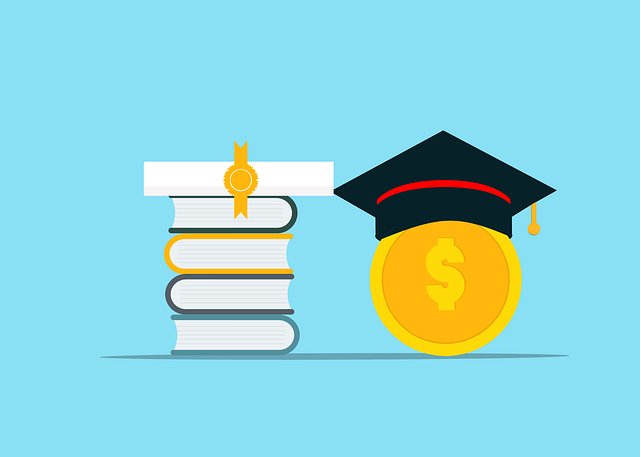Credit card debt, characterized by high-interest rates and minimum payments, traps individuals in a cycle of late fees and growing balances. Low Interest Debt Consolidation Loans offer a solution by providing a single loan with a lower interest rate, simplifying payments and accelerating debt repayment. To qualify, assess your financial situation, understand tailored loan options, and demonstrate responsible borrowing practices. Strategic repayment planning and disciplined budgeting are crucial for maximizing savings and achieving long-term financial freedom after consolidating credit card debt.
Struggling with multiple credit card bills? Consider debt consolidation loans as a strategic solution. This article guides you through understanding the heavy impact of credit card debt and how low-interest debt consolidation can help. We’ll explore eligibility criteria, effective repayment strategies, and long-term financial planning after consolidation. By the end, you’ll be equipped with knowledge to make an informed decision for a debt-free future, leveraging the benefits of low-interest debt consolidation loans.
- Understanding Credit Card Debt and Its Impact
- The Benefits of Low-Interest Debt Consolidation Loans
- How to Qualify for a Debt Consolidation Loan
- Strategies for Effective Debt Repayment
- Long-Term Financial Planning After Consolidation
Understanding Credit Card Debt and Its Impact
Credit card debt can quickly spiral out of control, with high-interest rates and minimum payment requirements making it difficult for individuals to gain financial freedom. The convenience of credit cards often leads to impulsive purchases, leading to balances that are hard to pay off. This can result in a vicious cycle of late fees and increasing debt. Low Interest Debt Consolidation Loans offer a viable solution by providing a single, consolidated loan with a lower interest rate, making it easier to manage and ultimately pay off the credit card debt.
By consolidating multiple credit card balances, borrowers can simplify their financial obligations and potentially reduce monthly payments. This strategy allows them to allocate their money more efficiently, avoiding the temptation to rack up further debt. With a low-interest rate, borrowers can focus on paying off the loan more quickly, freeing themselves from the burden of credit card debt once and for all.
The Benefits of Low-Interest Debt Consolidation Loans
Low-interest debt consolidation loans offer a compelling solution for those burdened by multiple credit card balances. One of the primary benefits is the significant savings on interest costs. Traditional credit cards often come with high-interest rates, which can add up over time and make it harder to pay off the debt. With a low-interest consolidation loan, borrowers can refinance their existing credit card debts at a lower rate, effectively reducing the overall interest paid. This results in faster debt repayment and substantial financial relief.
Additionally, these loans provide clarity and simplicity in managing debt. Instead of juggling multiple credit card payments with varying due dates and rates, borrowers can consolidate their debts into one single loan with a fixed interest rate and a clear repayment schedule. This streamlines the process, making it easier to stay on track and avoid missed payments, which can lead to penalties and further financial strain.
How to Qualify for a Debt Consolidation Loan
To qualify for a low interest debt consolidation loan, the first step is to assess your financial situation. Lenders will consider your credit history and score to determine eligibility. A good credit score indicates responsible borrowing and helps secure lower interest rates. Your income stability and existing debts are also key factors; lenders aim to ensure you can handle additional loan repayments without strain. Creating a budget and demonstrating financial responsibility can boost your chances.
Additionally, understanding the type of debt consolidation loan available is crucial. Different loans cater to various needs, such as balance transfers or personal loans. Lenders will evaluate your credit profile and the amount of debt you wish to consolidate to offer tailored options with competitive interest rates. Keeping a clear financial picture ready for evaluation by lenders will streamline the process.
Strategies for Effective Debt Repayment
When considering a debt consolidation loan, it’s crucial to strategize for effective repayment to make the most of this financial tool. One key approach is to prioritize high-interest debts, such as credit card balances, with a focus on clearing them first. This strategy leverages the power of Low Interest Debt Consolidation Loans, ensuring that your savings are maximized while repaying your debt faster.
Creating a structured repayment plan can further enhance this process. You might consider setting up automatic payments to avoid missed deadlines and potentially incur fees. Additionally, creating a budget that allocates specific funds for loan repayments can foster discipline and ensure timely settlements, ultimately leading to debt freedom.
Long-Term Financial Planning After Consolidation
After successfully using a debt consolidation loan to pay off credit card balances, the focus should shift to long-term financial planning. This involves creating a budget that allocates resources efficiently, ensuring bills are paid on time, and setting aside funds for future expenses. One significant advantage of low interest debt consolidation loans is that they provide an opportunity to establish a more manageable repayment schedule. By prioritizing savings and avoiding impulsive spending, individuals can build a robust financial foundation.
This new phase allows for strategic financial decisions, such as investing in retirement accounts, saving for emergencies, or funding educational goals. The discipline developed during the debt consolidation process can empower individuals to make informed choices that align with their long-term aspirations. As they progress, regularly reviewing and adjusting budgets will help maintain financial stability and avoid future debt accumulation.
Debt consolidation loans, particularly those with low interest rates, offer a strategic path to overcoming credit card debt. By consolidating balances and managing repayment effectively, individuals can regain financial control, reduce stress, and avoid the harmful effects of high-interest charges. This article has outlined key steps from understanding your debt to long-term financial planning, emphasizing the benefits of low-interest consolidation loans as a powerful tool for achieving financial stability.
